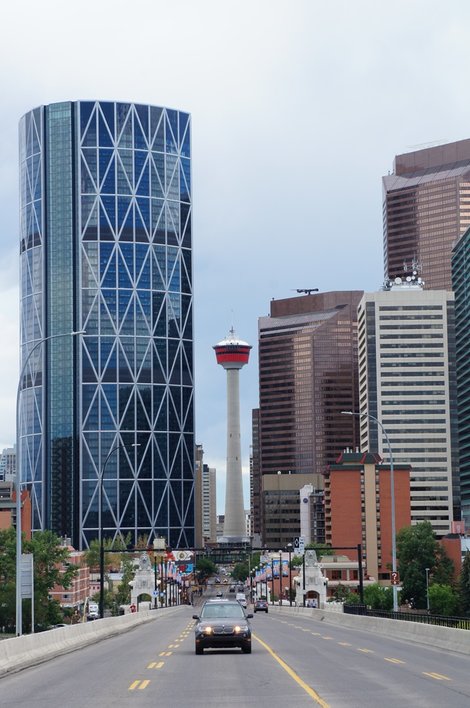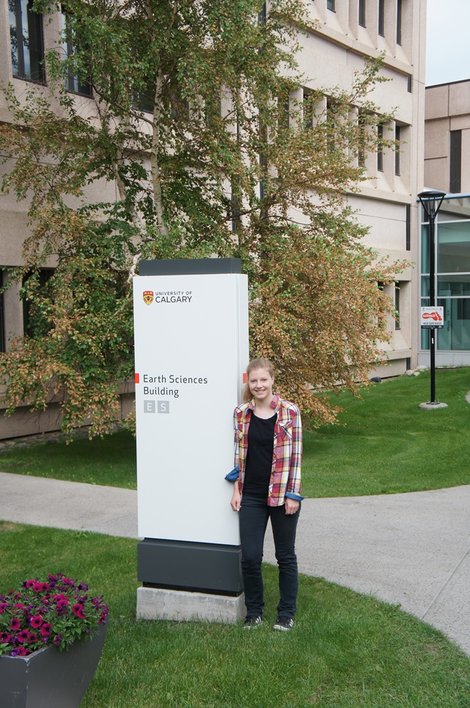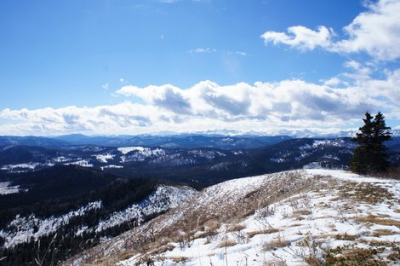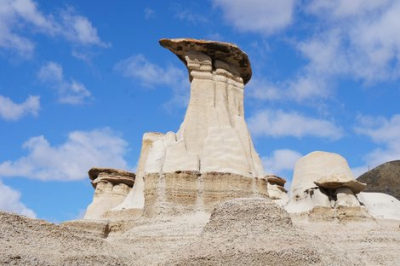Die Inhalte dieser Seite sind leider nicht auf Deutsch verfügbar.
Seitenpfad:
- ArcTrain
- Research stays abroad
- Research stay at the University of Calgary (A. Krandick)
Research stay at the University of Calgary (A. Krandick)
Januray 25 - July 4, 2016 Calgary, Canada

When arriving in Calgary at the end of January, I expected air temperatures around -15°C to -20° C. But due to the Chinook wind, a foehn wind coming from the Rocky Mountains, that was especially persistent this year, the temperatures this winter in Calgary were mainly around 0°C ± 5°C. In February, in general a very cold month, the temperatures even reached 17°C. Although these temperatures are not uncommon, the locals told me that this winter is really unusual. So, enjoying the sunny and quite warm winter I started my work at the Department of Geography at the University of Calgary, where parts of the Winter Olympic Games in 1988 took place.
The focus of my PhD project is to investigate the effect of freshwater runoff from the Northern Hemisphere ice sheets on ocean circulation. Therefore, I am working with a regional ocean model, covering the North Atlantic, the whole Arctic Ocean and the northernmost part of the Pacific Ocean. To get an idea of how much meltwater entered the oceans during the last deglaciation, I worked in Calgary with Shawn Marshall on ice sheet modeling. With this model it is possible to simulate the last glacial cycle to investigate e.g. the development of ice sheets and in my case especially the amount of meltwater runoff from the Northern Hemisphere ice sheets through the last deglaciation. I am going to implement these results in the ocean model to analyse the effect of meltwater runoff from the ice sheets on the ocean circulation in the North Atlantic. Thus, the research stay in Calgary built an important part of my PhD project.
Besides working on ice sheet modeling, I also met Samira, a Canadian ArcTrain PhD student, and used the opportunity to get an insight in her research by helping her to set up weather stations before her trip to Greenland. It was really hard to fix and connect all the small cables of the different measuring sensors so that all the data can be recorded, especially when thinking of doing it on Greenland at -30°C. But in the end everything went well.
During the time of my research stay, my family and I had the chance to explore the area around Calgary which is really amazing. Only 1 hour drive to the Canadian Rockies in the West and the Alberta badlands/prairies in the East.
Finally, I want to thank ArcTrain to make this research stay happen and that I got the possibility to take my family with me.
Annegret Krandick
During the time of my research stay, my family and I had the chance to explore the area around Calgary which is really amazing. Only 1 hour drive to the Canadian Rockies in the West and the Alberta badlands/prairies in the East.
Finally, I want to thank ArcTrain to make this research stay happen and that I got the possibility to take my family with me.
Annegret Krandick





